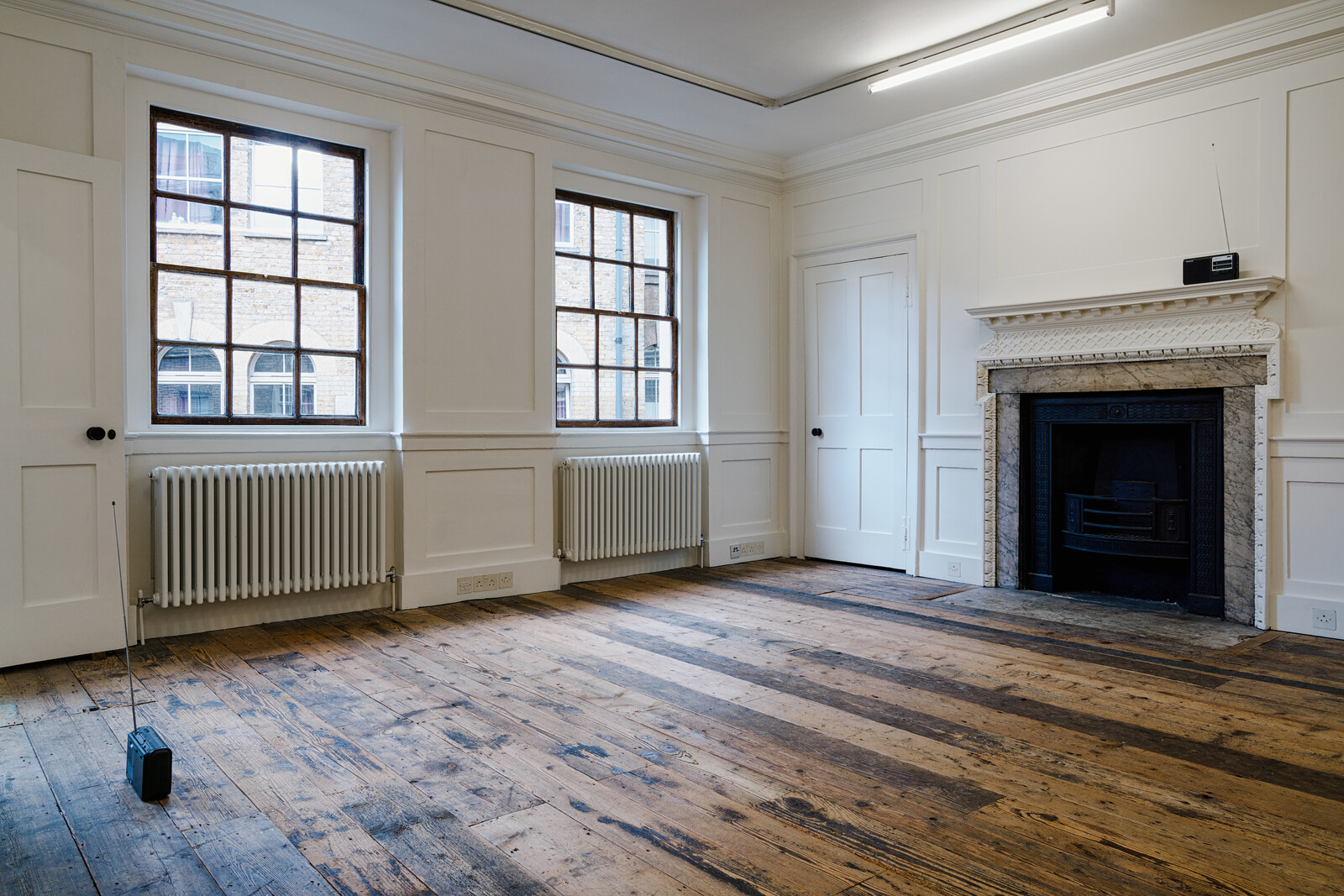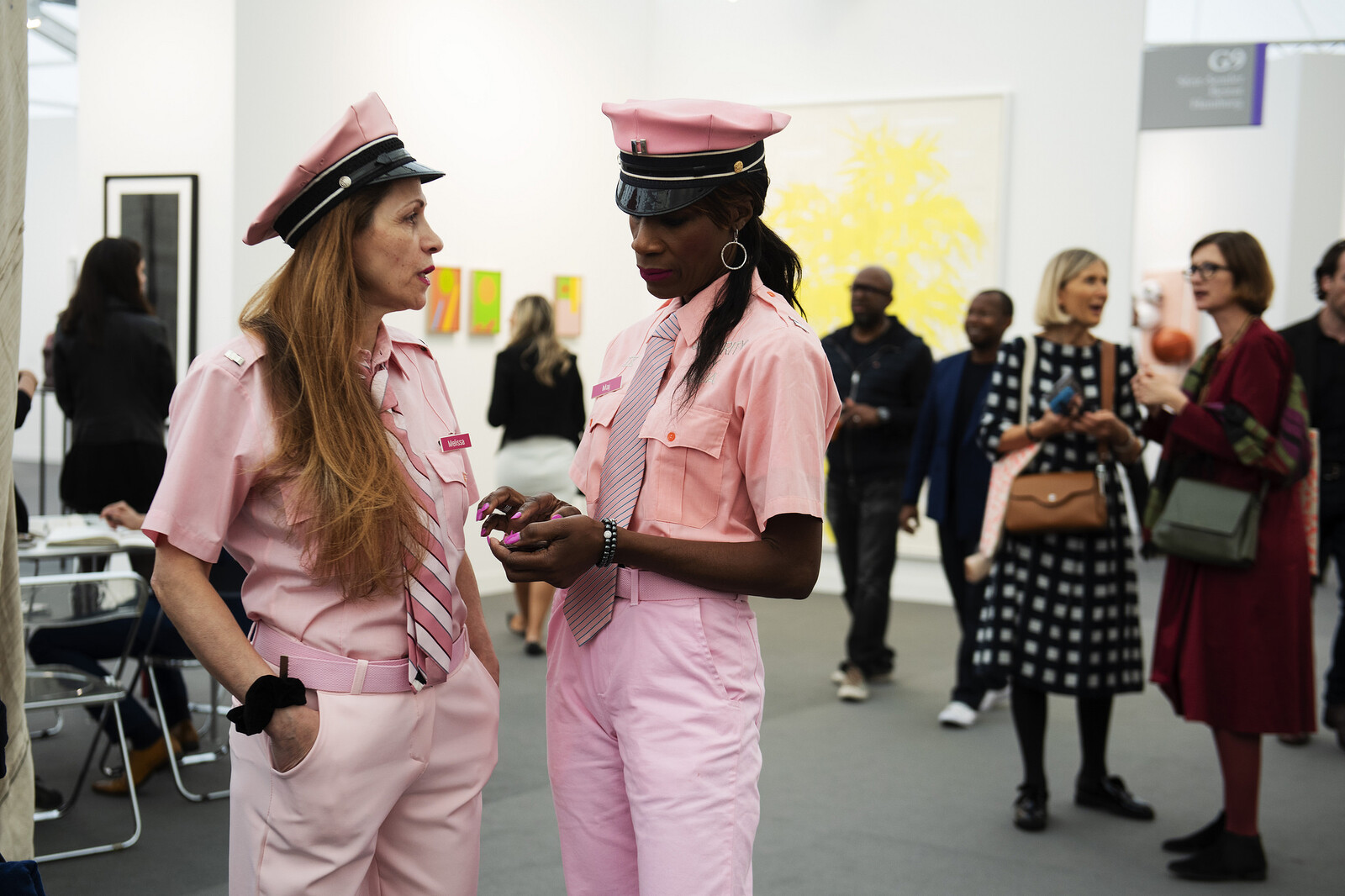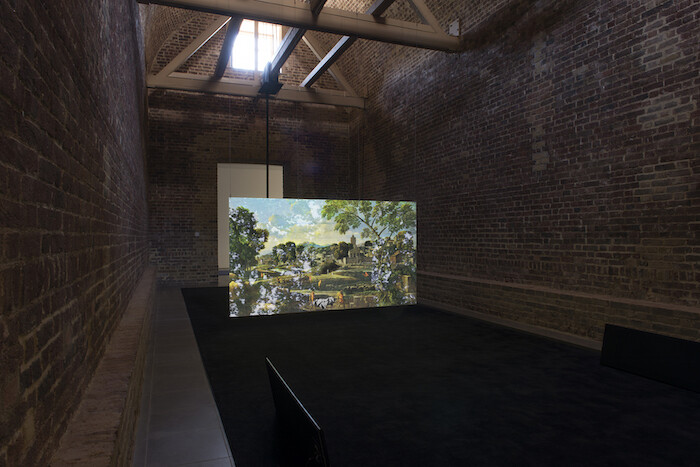Categories
Subjects
Authors
Artists
Venues
Locations
Calendar
Filter
Done
October 20, 2023 – Feature
London Roundup
Chris Fite-Wassilak

“Celebrating 20 years,” ran the bus and magazine ads for Frieze London, keen to capitalize on having reached a milestone. In 2003, the first fair was welcomed as a galvanizing and creative force—a Studio International review from the time breathlessly described it as the “the real thing […] the apotheosis of swing […] the Stargate.” Such enthusiasm seems cute now, after the artist projects that supposedly set the fair apart from other trade events (Mike Nelson earning a Turner Prize nomination in part for his 2006 installation at the fair) have been scaled back almost to invisibility, and the “Focus” section for younger galleries, introduced in 2013, effectively assimilated parallel smaller fairs such as Zoo and Sunday. Of the 164 stand-holders at this year’s Frieze London, only 30 of them (predominantly, of course, the larger multi-venue galleries) were at the first 2003 fair. Through all this, the fair has long presented itself as an annual temporary institution, masquerading as such among the long-term underfunding of the city’s public museums.
This hoarding of resources has a distorting effect on coinciding and parallel events that would otherwise register as an alternative, both to the fair and other art spaces around London. Several …
October 7, 2019 – Feature
London Roundup
Chris Fite-Wassilak
%20provisioning_hr.jpg,1600)
The world is burning. This is not a metaphor. The sky is bleached a searing lime green, tinged with burned orange that reflects off relentless choppy waves. Suddenly, the sky goes blood red and the horizon blackens, the sun a dull hole punched in the sky. Our view shifts, panning quickly to the left, then back again, as if searching for something, anything. The sky then changes again to a blinding sherbet yellow. The screen depicting this scene, mounted on a metal rack above a whirring circuit board, gives us a certain vision of our current reality. The shifting colors are a translation of information from a small atmospheric monitor mounted on the back of the rack. It’s not clear what directly causes the hues to brighten or waves to get that bit higher or more intense in Yuri Pattison’s sun[set] provisioning (2019) at mother’s tankstation—whether the car exhaust from the street outside, or the hungover breath from bodies in the room might make the scene that bit more trippy. The contraption offers a heavily mediated fiction, but it also makes an actuality visible and present: a drowned world, made hallucinatory and beautiful by toxins that saturate the air and …
October 12, 2018 – Feature
London Roundup
Mariana Cánepa Luna

Just as Frieze Art Fair opened last Wednesday, Prime Minister Theresa May gave her keynote speech—and dared to dance again—at the Conservative Party Conference in Birmingham. She announced that freedom of movement would be terminated “once and for all” by limiting access to “highly skilled workers” (in short, migrants earning over 30,000 British pounds per year). Countless art professionals earn much less (including entry-level curatorial staff at Tate, and yours truly), as well as doubtless many of the myriad gallery and museum folks involved in the city-wide jamboree of Frieze week. How do we imagine London’s contemporary art ecology post-Brexit, a scene that has grown exponentially since Tate Modern’s opening in 2000 and the first Frieze Art Fair in 2003? The question of how the 2019 edition of the fair is going to be affected was the elephant in the tent. Most people I asked shrugged: negotiations are still ongoing, consequences are yet to be seen. “It’ll be fiiiiine,” a London museum director told me. “Maybe we’ll visit a smaller fair, like the first editions—remember those days?” opined a British gallerist friend working in New York. Although one could put this upbeat denial down to the cliché of dark British …
October 19, 2015 – Feature
London Roundup
Orit Gat

In an art fair week, when it seems like everyone around is constantly discussing where they were, what they saw, and how it was, discourse is dependent on physical participation, on the encounter with art in a space, strengthening the primacy of the exhibition as a mode of experiencing artwork. While there is still a lot of thinking to be made about how display has historically shaped production and continues to do so, Frieze week in London is a great moment to assess whether there is something about the exhibition that makes it such a lasting form.
So why do we still go see exhibitions? Chisenhale Gallery is showing Jumana Manna’s A magical substance flows into me (2015), a 70-minute film screened five times a day. It is an exploration of traditional local music in Palestine/Israel, based on Manna’s research into the work of the German-Jewish ethnomusicologist Robert Lachmann (1892-1939) in Mandatory Palestine. Manna plays radio recordings made by Lachmann on an iPhone to the participants in her film, ranging from a young Jewish musician singing the Arabic songs her Moroccan grandmother taught her to a Palestinian flute maker who explains that traditional Palestinian music is more fashionable in the West …
